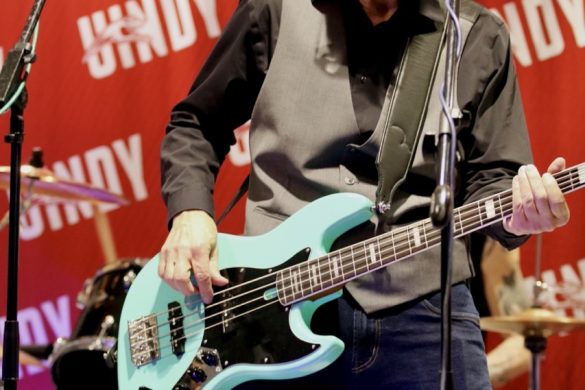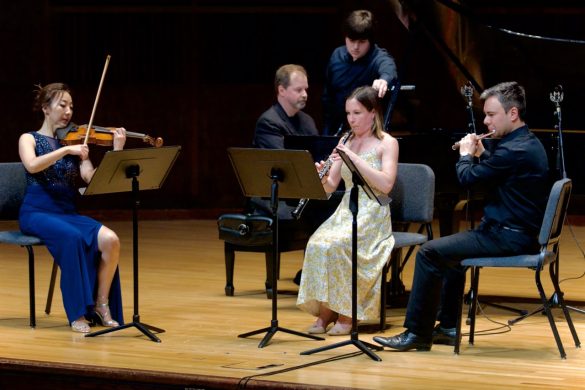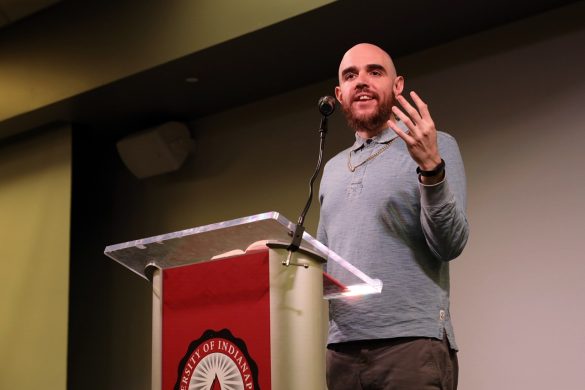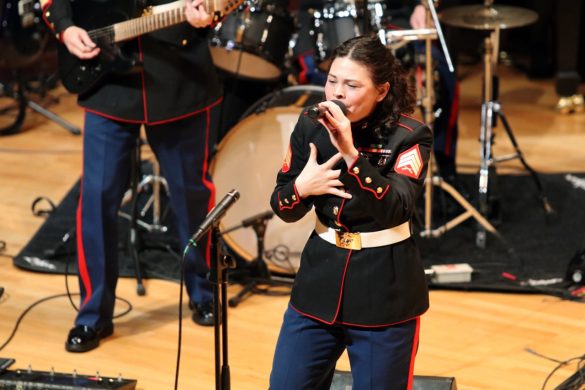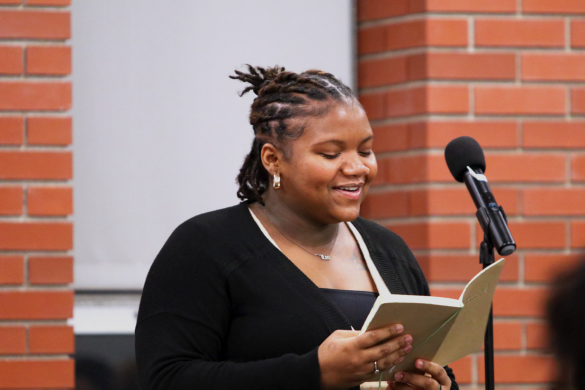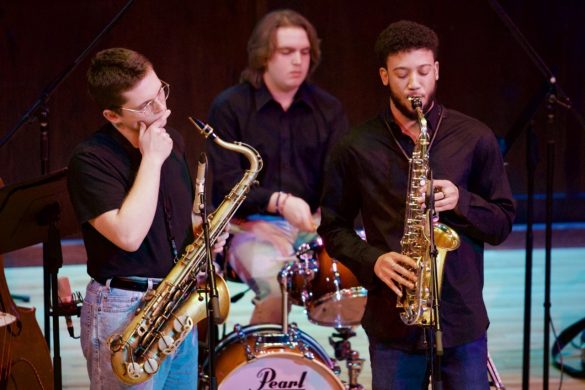University of Indianapolis Director of Choral Activities Webb Parker stands before the Justice Choir for rehearsal in McCleary Chapel in Schwitzer Student Center. The choir is currently rehearsing a song titled “Say Her Name,” composed by Alicia Lee, that focuses on the death of Breonna Taylor, according to Parker. He said the group will record an audio recording of the song and create a music video.
This choir is made up of about 30 members, ranging from students to faculty, and is open for anyone to join, according to Parker. He said he worked with Vice President and Chief Inclusion and Equity Officer Amber Smith to create this project at the start of the spring semester with the goal of making a creative outlet for the campus community.
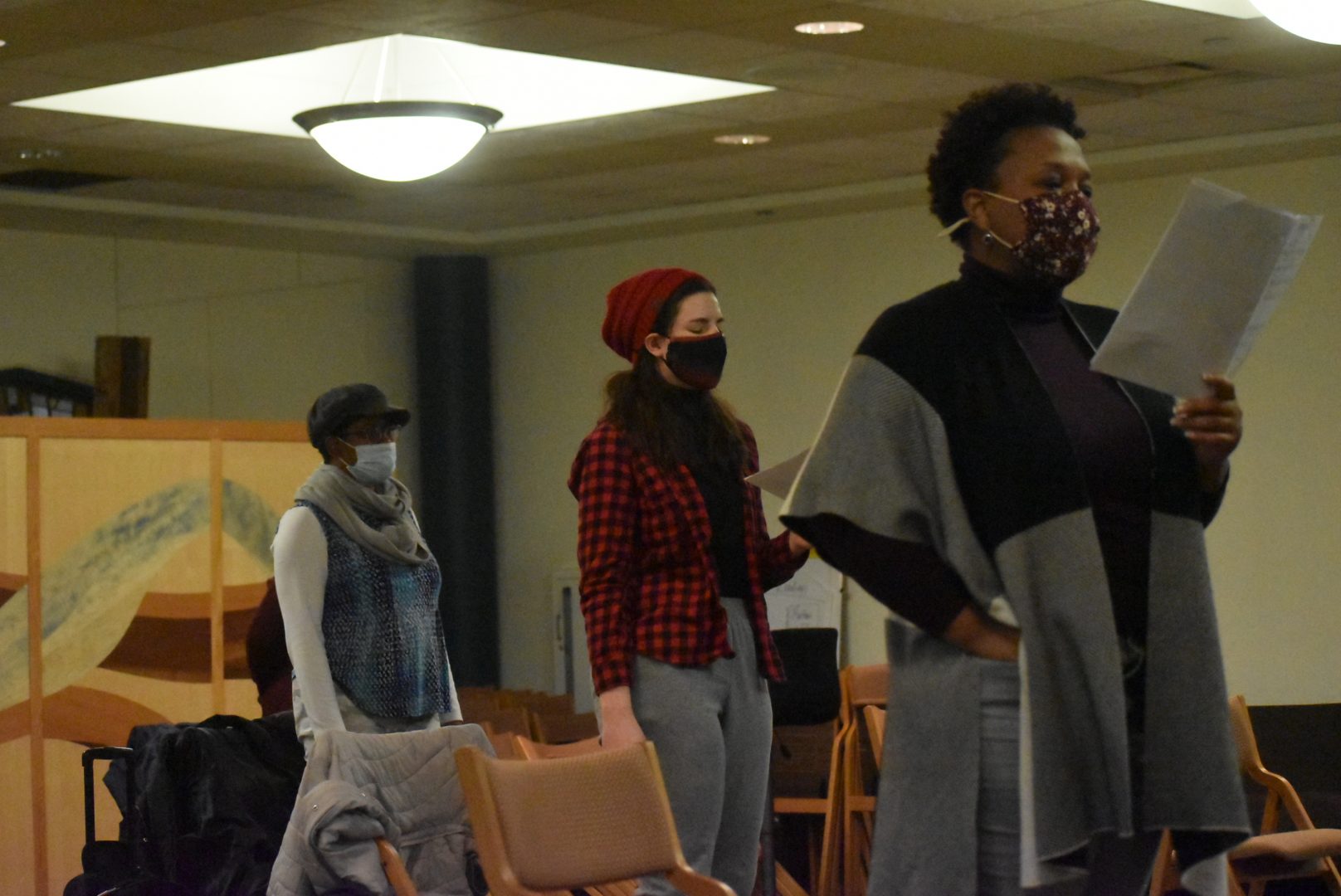
“The main goal for this project right now is to drum up interest, to educate, to show people this thing exists,” Parker said. “Moving forward post-COVID, we hope that this becomes a group on campus that’s quite active and quite visible, and when I say active and visible, I do mean in music-making, but also in activities that they plan on campus … It’s my hope that I can use my platform and Dr. Smith can use her platform to get this off the ground and then that students, faculty and other staff take up that mantle and continue to use Justice Choir as an arm for community on campus.”
According to Smith, projects like the Justice Choir are important for people on campus to get involved in activism in a way that pertains to them. She said this is important for her, as the Officer for Inclusion and Equity, to provide these creative opportunities to the community to let them authentically contribute to the conversation.
“Everybody is not going to march, everybody is not going to sit in the boardroom and change policy. Everybody has a gift to bring to the conversation,” Smith said. “And for some people, that’s going to be the arts. This is a way for people to engage with speaking out regarding social justice issues in a way that might be organic to who they are.”
Parker said he was inspired by a friend that is also a choral director in Minnesota who formed a justice choir a few years ago, hoping to create a collective of singers focused on activism. The group utilizes a justice choir songbook that acts as a hymnal for social and environmental justice issues, according to Parker.
“Justice Choir is meant to have the thread of music, or the thread of being a choir singing together, as part of who it is,” Parker said. “But its main goals or objectives are to form its own community activism, university activism or engagement around issues of social and environmental justice that are directly related to or important to that specific community.”
Another inspiration for forming the choir, according to Parker, was his prior experience and research surrounding social justice issues. He said one of the first things he wanted to do when he started working at UIndy was to get involved on campus in some way.
“This [social justice] is sort of where I started by asking some questions, by meeting Dr. Smith and by saying, ‘How can I be involved? How can I help? What does our campus need? What sort of work can I do?’ Basically, how can I get my hands dirty? What can I do besides post statuses on Facebook and those sorts of things?” Parker said. “I want to do something on this campus to become fully involved in campus life. And because social justice is a passion of mine because working with social justice issues is something that is not outside of [my] comfort zone for me, that’s just sort of where I started looking to become involved.”
According to Smith, she wants to see projects like the Justice Choir grow on campus and have social justice and activism projects become a part of the campus community. She said these projects will allow people on campus to find a form of activism that pertains to them.
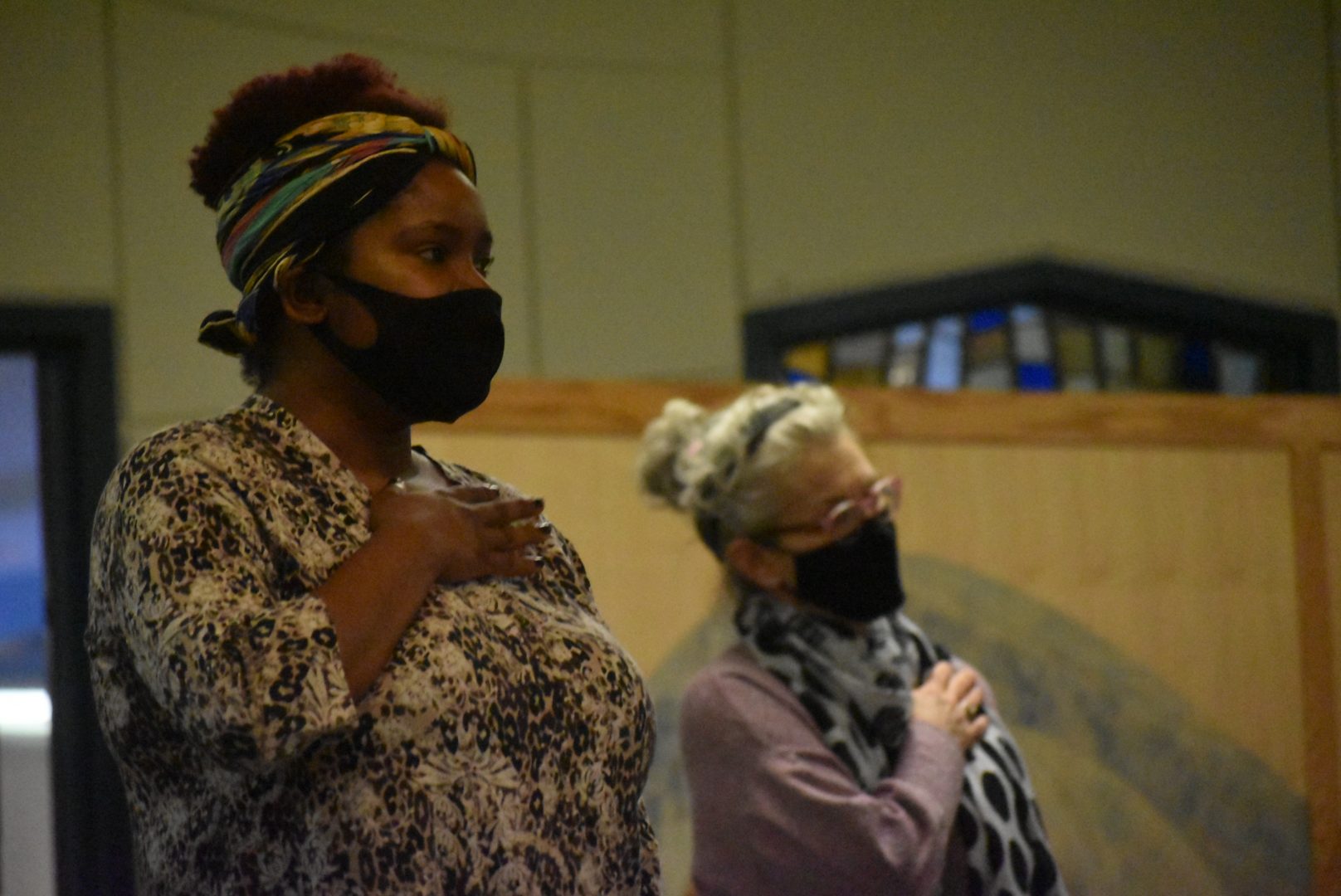
“So you got the Juneteenth [podcast], you got the BelongSpace [Speaker Series], you got the play [“Kill Move Paradise”] and so I think that’s really important. They continue to work to make sure that those opportunities are made available,” Smith said. “So that’s how it becomes a part of your university culture. Not just something, not just a one-off you do. But eventually, it’ll be like, ‘I helped start some things’ and then someone else is taking lead and it’s just going, and it just becomes a part of your culture.”
CORRECTIONS: March, 3 2021 at 11:33 a.m..
A previous version of this article named McCleary Chapel as University Chapel. The article has since been updated with the correct name.

